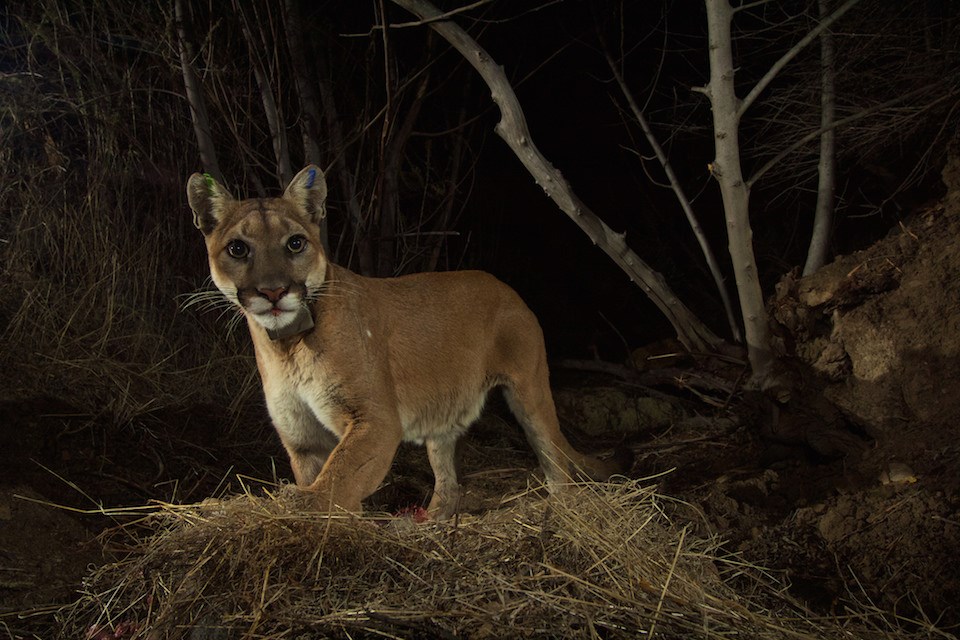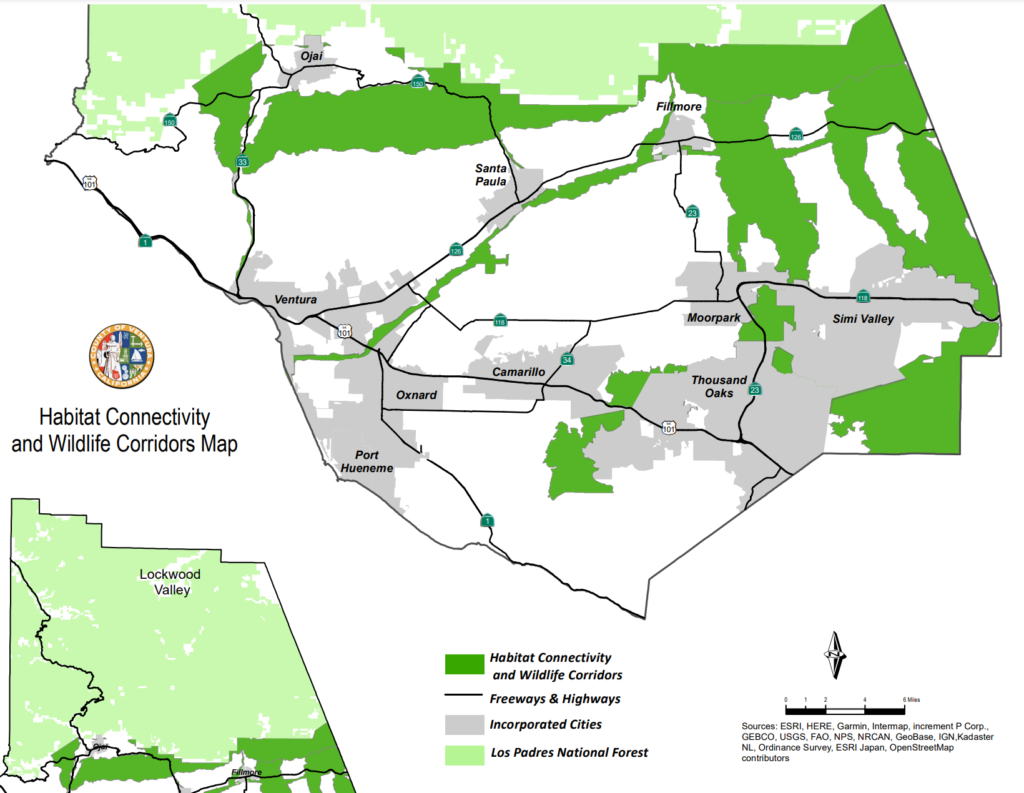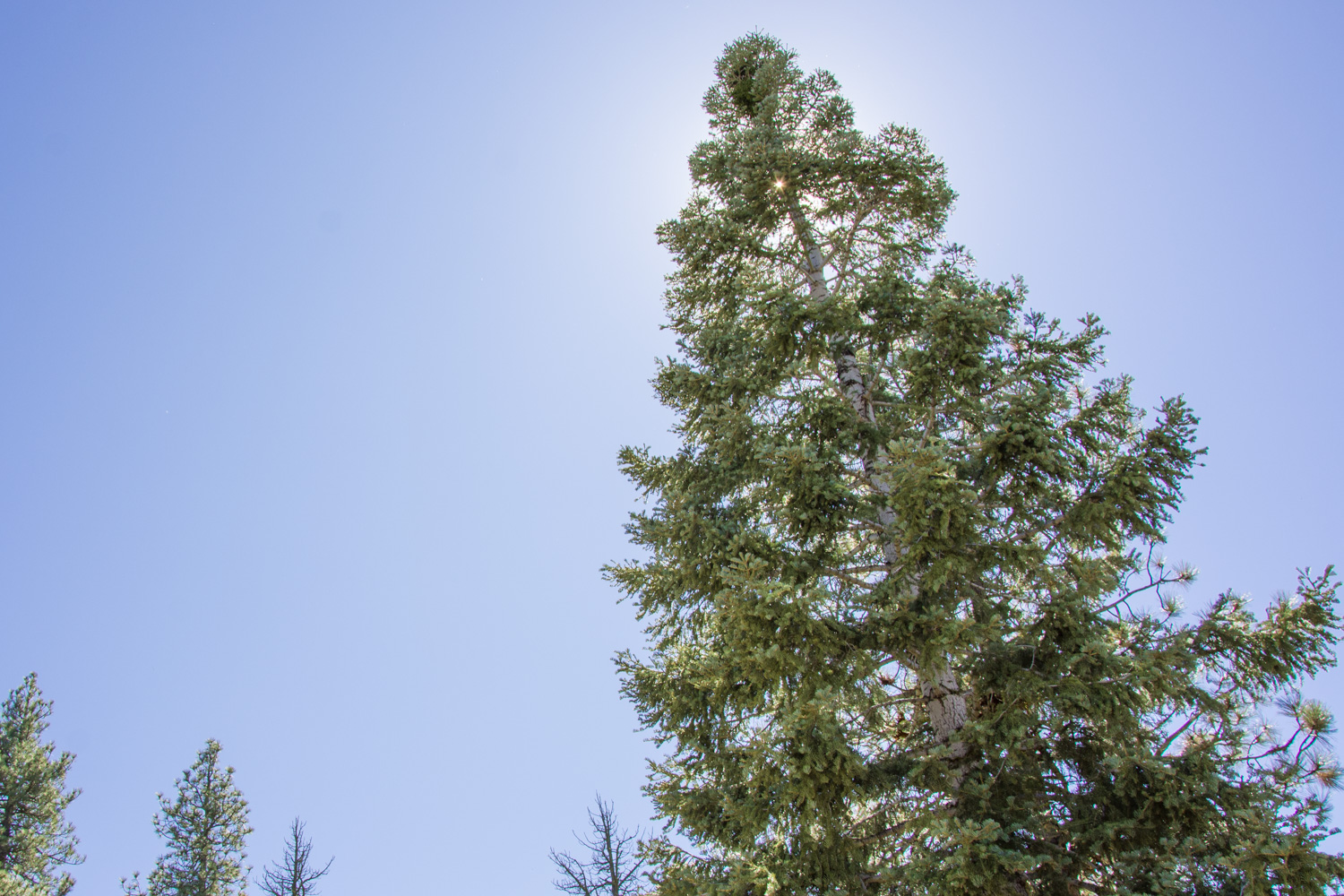
VENTURA COUNTY, Calif.— A new program that increases protections for wildlife corridors throughout southern California’s Ventura County has prevailed after a three-judge panel agreed with the county and conservationists and found that the wildlife protections were lawful.
The unanimous ruling, issued on November 13 by the California Court of Appeals, upholds a set of land use ordinances to protect creeks, rivers, and other pathways used by wildlife to travel between key habitat areas. The program was approved by the County’s board of supervisors in 2019 to provide incentives for landowners to avoid development that may hinder wildlife connectivity. It is the first program of its kind in California.
“This is a tremendous victory for our region’s wildlife, giving them more room to roam across the landscape,” said Jeff Kuyper, executive director of Los Padres ForestWatch. “These science-based measures will help secure a safer future for our region’s wildlife, giving them a fighting chance as they try to navigate amidst highways and urban sprawl.”
The three-judge panel issued the ruling in response to a legal challenge to the ordinances by industry lobbying groups including the Ventura County Coalition of Labor, Agriculture and Business, and the California Construction and Industrial Materials Association. Four conservation groups formally intervened in the case to support the County’s position.

“This is proof that communities can and should develop sensibly and keep wildlife connectivity in mind,” said Aruna Prabhala, a senior attorney at the Center for Biological Diversity. “Decision makers across California should look to Ventura County and consider wildlife corridor protection as a way to co-exist with the beloved wildlife all around us.”
The ordinances help protect the wildlife corridors that connect the Los Padres National Forest, Santa Monica Mountains, and Simi Hills. Habitat connectivity is crucial for the survival of mountain lions, gray foxes, black bears, deer, California red-legged frogs, and other wildlife in the region.
“This decision is a victory for Ventura County and the diverse wildlife that need to navigate the complex and developed landscape,” said Pamela Flick, California program director for Defenders of Wildlife. “We commend the county for its bold leadership to ensure that wildlife can better move through their environment and hope these ordinances will serve as a model for counties throughout California.”
In Southern California, mountain lions have struggled with diminishing and fragmented habitat. The California Fish and Game Commission is considering permanent protection of Southern California and Central Coast mountain lions under the state’s Endangered Species Act. A vote is expected in the coming months.

“This decision is a critical win for conservation, and the hope that numerous threatened and endangered species will continue to grace our landscapes for generations to come,” said Dennis Arguelles, Los Angeles program manager for National Parks Conservation Association. “From the Los Padres National Forest to the Santa Monica Mountains, local wildlife has a fighting chance thanks to the innovation and leadership of Ventura County.”
Earlier this year, the Ventura County board of supervisors voted unanimously to adopt a second set of measures providing safe passage for wildlife and vehicles at 14 existing wildlife crossing structures (e.g. bridges and road culverts) in the northern part of the county, including near Ojai and within the boundary of the Los Padres National Forest. The ordinance limits certain types of development and land uses within 200 feet of the crossings.
Together, the two programs mark the culmination of a multi-year effort by the Ventura County Planning Division to establish a county-wide balance between private property interests and the need to protect Ventura County wildlife from vehicle-related mortality. The action is also a major victory for conservation groups that continue to defend these wildlife protections in court.
Los Padres ForestWatch, the Center for Biological Diversity, Defenders of Wildlife and the National Parks Conservation Association intervened to defend the ordinances. The groups were represented by the Environmental Law Clinic at the University of California, Irvine School of Law.







Comments are closed.